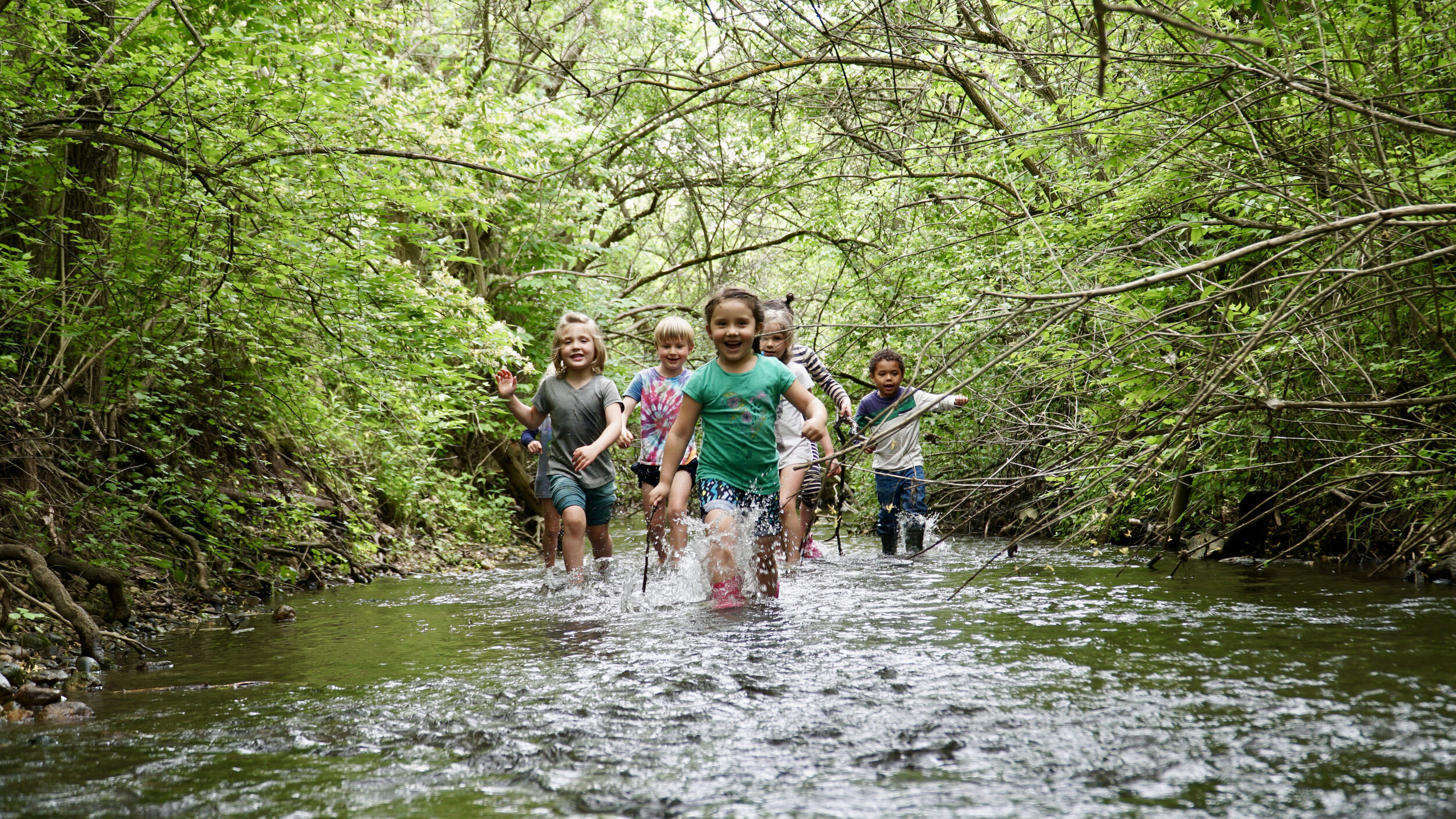
equity and inclusion
Educators at the Chicago Waldorf School recognize the value of including a variety of cultures, experiences, opinions, and life stories in each classroom. Lessons are filled with global perspectives that prepare students to be active citizens and leaders for the future. In every subject there is an effort to authentically reflect the lived experience of our students, while introducing concepts and subjects that may be less familiar. This variety is an essential part of educating the whole human being.
The Chicago Waldorf School is also fortunate to have a wide array of cultures, races, economic backgrounds, religious affiliations, gender identities, sexual orientations, and abilities represented in the makeup of our faculty, staff, parents, and students. We value this multiplicity in our families and students as we continue to collaborate with the diverse communities of Chicago and around the world to enrich our educational and social environment and to actively engage with the world in which we live.
black lives matter
The events of the past few years have rightly challenged many individuals and institutions to question their complicity in the racism we see around us. The Chicago Waldorf School is no different. We, as faculty, staff, and community members, have been taking a critical look at our own actions, past and present, with the goal of exposing our biases, so that we might continue the work of eradicating them.
The Chicago Waldorf School firmly believes that Black lives matter. But we also believe that ‘Black Lives Matter’ is not simply a statement – it is an admission of accountability; it is a declaration of purpose; it is a call to action.
First, we are committed to growing ourselves as educators and as people so that we may acknowledge, understand, and unlearn our biases. This project is difficult and ongoing, but it is the vital first step on the path to racial justice in our classrooms and in our country.
We are committed to constantly assessing and reimagining our curriculum so that we are exposing ourselves and our students to the literature, culture, history, and perspective of people of all races, genders, and abilities.
We are committed to learning how to better facilitate difficult conversations in our classrooms in an age-appropriate way, so that our students feel encouraged to engage with the complexities of the world around them.
We are committed to diversifying our faculty and staff across race, gender, and ability so that our school more fully reflects the community in which we live and work.
We are committed to making our school more financially accessible, so that we can grow the economic diversity of our community and ensure that the cost of tuition is never a deterrent for prospective families.
We are committed to educating against racism, sexism, homophobia, transphobia, and ableism, and will not tolerate their expression in any form.
We are committed to embodying a pedagogy based on the principles of peace, equity, and justice, so that we may pass these principles on to our students.
Finally, we are committed to continuing this work throughout our future as a school. We have made and will continue to make mistakes, but we are committed to carrying on with this work anyhow. We will not let our missteps discourage us. We understand that work toward equity and justice never ends – that it evolves and changes and demands from us the engagement of our highest selves. As long as there is work to be done, be assured that we are committed to doing it.
We also stand with the Association of Waldorf Schools of North America in denouncing all statements or indications made by Rudolf Steiner that contradict the above values.
The Association of Waldorf Schools of North America recognizes the historic and ongoing impact of racism on our continent and the injustice and discrimination faced by Black, Indigenous and People of Color. We understand that inclusivity and equity is a journey of both moral and educational imperative. As such, we take seriously our responsibility to bear witness to what is happening in the world, to center the voices of color in racial justice work, to change the course of inequities, and to identify and break down structural racism in all forms where it exists, particularly in Waldorf education.
Waldorf education espouses principles of respect for human dignity. Any narratives or indications made by Rudolf Steiner that are in contradiction to these principles are not the basis for Waldorf education and we unequivocally denounce such statements.
We know that we have far to go as an association and as individuals in our understanding of racial oppression and social justice. Advancing the principles of diversity, equity and inclusion (DEI) is one of the compelling forces behind AWSNA’s strategic priorities. These priorities make equity and inclusion central to our work and aim to bring us closer to the world that we want for our youth.
The AWSNA executive team is spending more time than ever asking the following questions:
How do we participate, consciously or unconsciously, in systemic racism?
What meaningful actions will we take in service to the leadership and agency of Black, Indigenous, and People of Color?
Where are the possibilities for each of us to prioritize racial justice in our work to further Waldorf education?
How do we actively engage in anti-racism both personally and professionally'?
We invite you to join us in exploring these questions and in elevating your own commitment to social justice.
